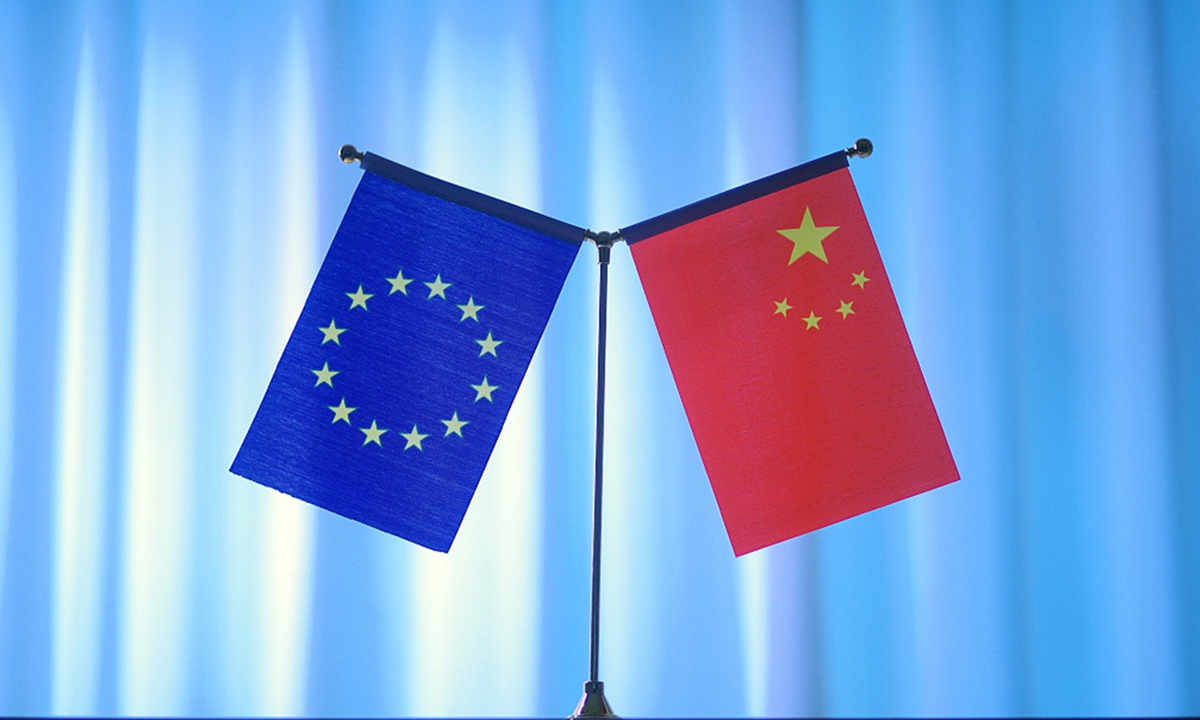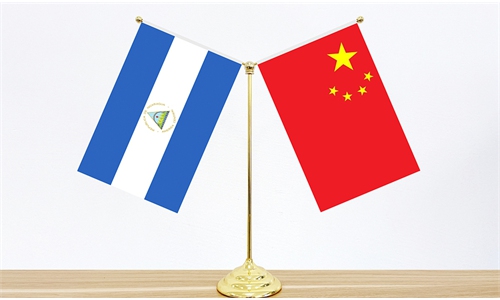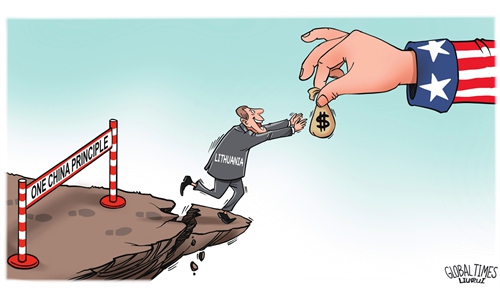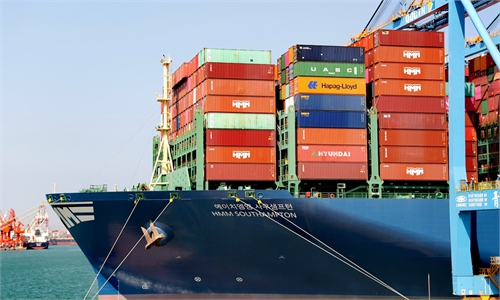
China EU. Photo: VCG
Some European politicians and scholars are calling for more pressure on China due to its "coercion" against Lithuania, including by advocating economic "decoupling" between China and the EU. Even though the "decoupling" is unlikely to become a reality for now, it still is worth raising the alarm for Europe.On Saturday, chair of the European Parliament's delegation for relations with China Reinhard Bütikofer, who is also the first on the tit-for-tat EU sanction list that China released in March, claimed in a podcast with German media Deutsche Welle that there is no reason to fear China's reaction, so the EU must adopt a "very assertive policy" toward China. He went on to say that Germany is also not as economically dependent on China as people have claimed.
One day before that, Jakub Janda, executive director of the Prague-based think tank European Values Center for Security Policy, criticized France on Twitter for doing nothing as China "blackmails" Lithuania. His tweet goes, "You remember that French talk about 'EU strategic autonomy'? When China openly blackmails EU member state Lithuania, does France press China hard to make the geopolitical aggression stop? No. France, as always, goes ahead with appeasement and empty words. Again."
The statements made by Bütikofer and Janda represent a type of voice that is getting more and more popular in Europe now: It labels the measures China is taking against Lithuania as "economic coercion" and "diplomatic bullying," according to Cui Hongjian, director of the Department of European Studies at the China Institute of International Studies.
However, people holding such a view do not seem to understand the causality behind these measures. They do not see which side should be primarily responsible for the sudden, free-falling deterioration of China-Lithuania relations. Instead, they just indiscriminately blame China for doing what "it shouldn't have."
"We need to be wary of this kind of voice that seems to aim at creating public opinion for the economic 'decoupling' between China and Europe and shaking the usual judgment that economic and trade cooperation is the ballast of China-EU relations," Cui told the Global Times.
Such rhetoric attempts to claim that Europe does not benefit that much from economic and trade cooperation with China. In other words, Europe can bear the economic and trade cost if there is even a partial economic "decoupling" between China and Europe. In this way, people like Bütikofer and Janda hope that Europe will become more assertive toward China without worrying since the outcome is believed to be bearable for Europe.
In Cui's opinion, this view could be quite dangerous if it continues to spread across Europe. On the one hand, it will increase public hostility in Europe toward China, pressuring the European business community into not continuing cooperation with China. On the other hand, it may mislead the EU into believing that it can be tough with China since Europe's economic interests will not be affected much even if China retaliates.
However, China was the largest trading partner of both Germany and the EU in 2020. In the first 11 months of 2021, China-Germany bilateral trade has increased by 15.9 percent year-on-year. Despite such a reality, politicians and scholars such as Bütikofer and Janda try to pull the wool over the eyes of the European people by constantly advocating the use of European "strategic autonomy" against China. Now they are taking advantage of the conflict between Beijing and Vilnius as a tool to hijack the whole of Europe's interests.
Their attempt will never work because they fail to understand that the China-Lithuania conflict is caused by Lithuania treading on the red line China has set on the Taiwan question, but the EU is "unlikely to follow the steps of Lithuania anytime soon," Cui noted.
Besides, the majority of European countries do not have the will and ability to follow Lithuania's lead to challenge China, as it would only damage their own economic interests. Moreover, this would easily provoke internal conflicts and affect the unity of the EU since Europe has not agreed on what further measures to take regarding the China-Lithuania conflict. Lithuania is not able to, and should not, become a wedge in China-EU relations, especially in terms of economic cooperation and trade.



